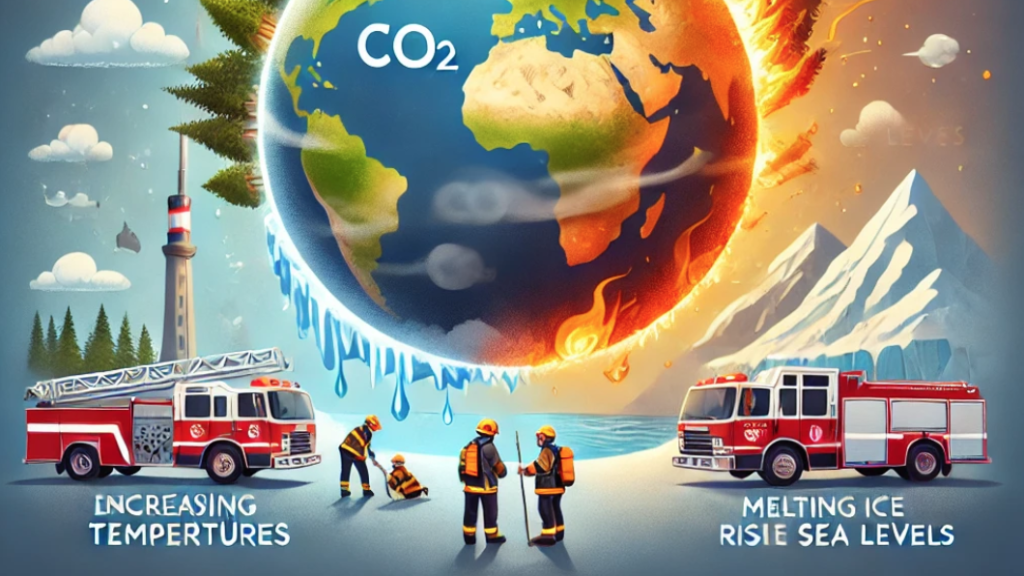
Warming may have reached a self reinforcing stage - CO2 levels higher than in 3 million years
Thank you for choosing Automatic Translation. Currently we are offering translations from English into French and German, with more translation languages to be added in the near future. Please be aware that these translations are generated by a third party AI software service. While we have found that the translations are mostly correct, they may not be perfect in every case. To ensure the information you read is correct, please refer to the original article in English. If you find an error in a translation which you would like to bring to our attention, it would help us greatly if you let us know. We can correct any text or section, once we are aware of it. Please do not hesitate to contact our webmaster to let us know of any translation errors.
The concentration of greenhouse gases continues to rise, reaching record levels last year, according to the WMO’s annual report. These levels have not been this high for at least three million years. Scientists now fear that climate change may have entered a self-reinforcing cycle.
Ko Barrett, Deputy Secretary-General at the World Meterological Organization (WMO) has issued a warning that we may be heading into a potential vicious cycle.
Emissions from fossil fuels, deforestation, and agriculture are driving increasingly higher levels of greenhouse gases in the atmosphere, accelerating climate change. Over the past two decades, carbon dioxide levels have risen by more than 11%, faster than at any other time in human history, according to the World Meteorological Organization’s annual Greenhouse Gas Bulletin.
“This is more than just statistics. Every part per million or fraction of a degree has a real impact on our lives and the planet,” said WMO Secretary-General Celeste Saulo.
A Self-Reinforcing Cycle
The year 2023 was the warmest on record, partly due to El Niño. Additionally, droughts in the Amazon and massive wildfires in Canada caused greenhouse gas concentrations to spike even more toward the end of the year.
These processes worry scientists, who observe that climate change is beginning to reinforce itself. Drought and more wildfires reduce the amount of carbon dioxide absorbed by land, while warmer oceans absorb less carbon dioxide. Last year, nature managed to compensate for only a small fraction of human emissions, according to preliminary research.
“These climate feedback loops are truly alarming for humanity,” said Ko Barrett, WMO Deputy Secretary-General.

